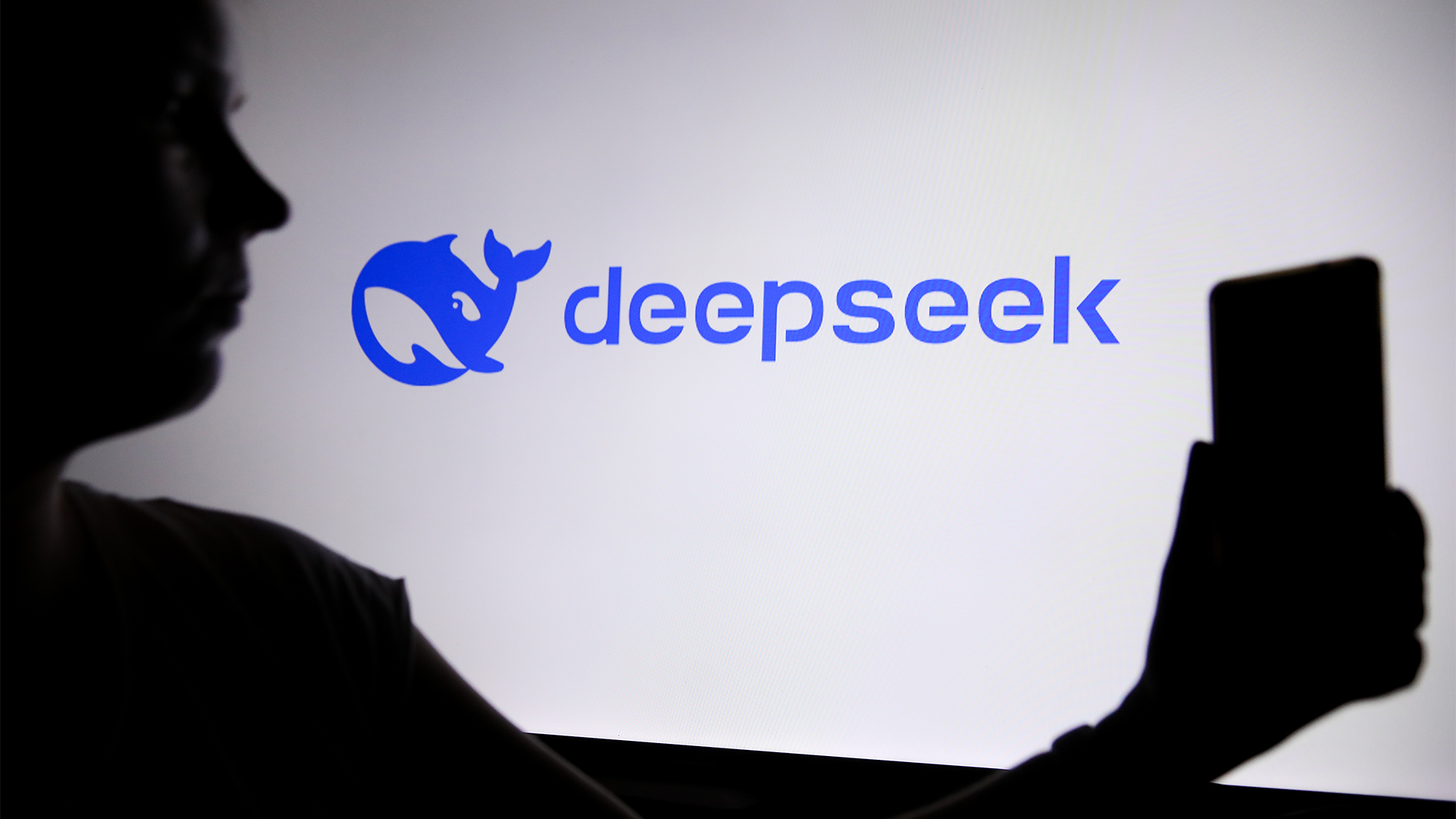DeepSeek’s R1 model training costs pour cold water on big tech’s massive AI spending
Chinese AI developer DeepSeek says it created an industry-leading model on a pittance


In mid-2024, Anthropic CEO Dario Amodei projected AI training costs to soar to such an extent that building a new model could cost upwards of $100 billion.
Amodei’s lofty claims appear to have been completely shot down with the publication of a new research paper from DeepSeek. In a recent paper, published in the academic journal Nature, the Chinese AI developer claims it spent a paltry amount training its flagship R1 model.
All told, training costs amounted to $294,000, with the company using 512 Nvidia H800 chips to build the model that had US companies sweating earlier this year.
It’s worth noting that these costs come in addition to around $6 million spent by the firm to create the base LLM R1 is built on. Regardless, the results are impressive given the far higher training costs associated with competing models.
So what makes DeepSeek R1 tick?
Under the hood of DeepSeek R1
DeepSeek R1 is a ‘reasoning model', meaning it’s designed specifically to excel at tasks such as mathematics and coding. It’s also an ‘open weight’ model, so is freely available for anyone to download.
As ITPro reported earlier this year, the decision to offer R1 as an open weight model was welcomed by industry stakeholders, and also gave competitors a vital insight into how the model performed compared to others out there on the market.
Sign up today and you will receive a free copy of our Future Focus 2025 report - the leading guidance on AI, cybersecurity and other IT challenges as per 700+ senior executives
R1 is among the most popular models currently available on AI community platform, Hugging Face, having been downloaded over 10 million times.
AI reasoning models are purposefully trained on real-world data, enabling them to “learn” how to solve specific problems. It’s a costly, long-winded process but has been a key focus for AI providers over the last 18-months as they offer users more intuitive tools.
According to this latest research paper, DeepSeek was able to reduce training costs through a carrot-and-stick type approach to reinforcement learning. Researchers essentially incentivized and rewarded the model to produce correct answers to user queries.
In a blog post dissecting the paper, researchers at Carnegie Mellon University noted that this was akin to a child playing video games, constantly learning new ways to progress.
“As the child navigates their avatar through the game world, they learn through trial and error that some actions (such as collecting gold coins) earn points, whereas others (such as running into enemies) set their score back to zero,” researchers explained.
“In a similar vein, DeepSeek-R1 was awarded a high score when it answered questions correctly and a low score when it gave wrong answers.”
So much for huge training costs
DeepSeek has previously hinted that its training processes were highly cost efficient. A preprint release of the study, published in January, pointed toward far lower costs compared to US competitors.
Some Silicon Valley figures questioned the veracity of DeepSeek’s claims at the time, but with R1 becoming the first peer-reviewed LLM, the company appears vindicated.
AI training has long been lamented as a costly, compute-intensive process for big tech providers. Amodei isn’t alone in highlighting the huge costs associated with this, either.
In 2023, OpenAI CEO Sam Altman hinted that foundation model training had cost upwards of $100 million.
These figures appear to have been confirmed during his appearance at a 2024 MIT event, where he said it’s “more than that”, per reports from Wired.
Make sure to follow ITPro on Google News to keep tabs on all our latest news, analysis, and reviews.
MORE FROM ITPRO

Ross Kelly is ITPro's News & Analysis Editor, responsible for leading the brand's news output and in-depth reporting on the latest stories from across the business technology landscape. Ross was previously a Staff Writer, during which time he developed a keen interest in cyber security, business leadership, and emerging technologies.
He graduated from Edinburgh Napier University in 2016 with a BA (Hons) in Journalism, and joined ITPro in 2022 after four years working in technology conference research.
For news pitches, you can contact Ross at ross.kelly@futurenet.com, or on Twitter and LinkedIn.
-
 The modern workplace: Standardizing collaboration for the enterprise IT leader
The modern workplace: Standardizing collaboration for the enterprise IT leaderHow Barco ClickShare Hub is redefining the meeting room
-
 Interim CISA chief uploaded sensitive documents to a public version of ChatGPT
Interim CISA chief uploaded sensitive documents to a public version of ChatGPTNews The incident at CISA raises yet more concerns about the rise of ‘shadow AI’ and data protection risks
-
 What the UK's new Centre for AI Measurement means for the future of the industry
What the UK's new Centre for AI Measurement means for the future of the industryNews The project, led by the National Physical Laboratory, aims to accelerate the development of secure, transparent, and trustworthy AI technologies
-
 Half of agentic AI projects are still stuck at the pilot stage – but that’s not stopping enterprises from ramping up investment
Half of agentic AI projects are still stuck at the pilot stage – but that’s not stopping enterprises from ramping up investmentNews Organizations are stymied by issues with security, privacy, and compliance, as well as the technical challenges of managing agents at scale
-
 What Anthropic's constitution changes mean for the future of Claude
What Anthropic's constitution changes mean for the future of ClaudeNews The developer debates AI consciousness while trying to make Claude chatbot behave better
-
 Satya Nadella says a 'telltale sign' of an AI bubble is if it only benefits tech companies – but the technology is now having a huge impact in a range of industries
Satya Nadella says a 'telltale sign' of an AI bubble is if it only benefits tech companies – but the technology is now having a huge impact in a range of industriesNews Microsoft CEO Satya Nadella appears confident that the AI market isn’t in the midst of a bubble, but warned widespread adoption outside of the technology industry will be key to calming concerns.
-
 DeepSeek rocked Silicon Valley in January 2025 – one year on it looks set to shake things up again with a powerful new model release
DeepSeek rocked Silicon Valley in January 2025 – one year on it looks set to shake things up again with a powerful new model releaseAnalysis The Chinese AI company sent Silicon Valley into meltdown last year and it could rock the boat again with an upcoming model
-
 Workers are wasting half a day each week fixing AI ‘workslop’
Workers are wasting half a day each week fixing AI ‘workslop’News Better staff training and understanding of the technology is needed to cut down on AI workslop
-
 Retailers are turning to AI to streamline supply chains and customer experience – and open source options are proving highly popular
Retailers are turning to AI to streamline supply chains and customer experience – and open source options are proving highly popularNews Companies are moving AI projects from pilot to production across the board, with a focus on open-source models and software, as well as agentic and physical AI
-
 Microsoft CEO Satya Nadella wants an end to the term ‘AI slop’ and says 2026 will be a ‘pivotal year’ for the technology – but enterprises still need to iron out key lingering issues
Microsoft CEO Satya Nadella wants an end to the term ‘AI slop’ and says 2026 will be a ‘pivotal year’ for the technology – but enterprises still need to iron out key lingering issuesNews Microsoft CEO Satya Nadella might want the term "AI slop" shelved in 2026, but businesses will still be dealing with increasing output problems and poor returns.